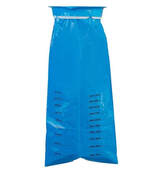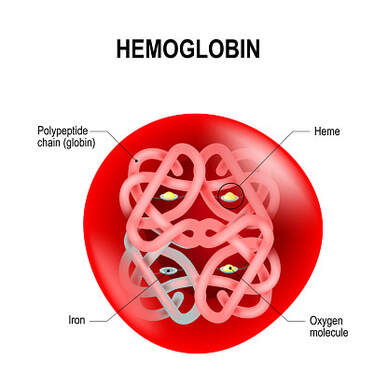Group B Strep (GBS) is anaerobic bacteria that is usually found in the digestive tract. In 10-30% of pregnant women, it can colonize or grow in the vagina.
Why is GBS a concern during pregnancy?
Most women carrying GBS will have no symptoms. Carrying GBS is not harmful to you, but there is a small chance it can affect your baby around the time of birth.
How will I know if I have GBS?
GBS is detected by doing a vaginal swab and running a culture. The recommendation is to test between 36 to 38 weeks gestation.
If I test positive for GBS, will I still have GBS when my baby is born?
GBS is transient so your status can change. Up to 33% of women who test positive at 36 weeks may be negative at birth, and up to 10% of women who test negative at 36 weeks may be positive at birth. Without doing a rapid test (which is not the standard of care in the US), GBS status at the time of birth is unknown. For the clients I serve who test positive at 36 weeks, they have the option to repeat the test to see if their status has changed.
What are the risks of GBS to my baby?
GBS can occasionally cause serious infection in newborns. Many babies come into contact with group B Strep during labor or around birth, and the vast majority will not become ill. Of Moms who test positive for GBS and choose not to have antibiotic treatment, up to 2% of babies born will develop a GBS infection. For Moms who test positive and choose to have antibiotic treatment, the risk of baby being infected drops down to .2 to .4% If the GBS infection is not treated, babies can become seriously ill. With prompt treatment, most babies will make a full recovery, a small number of babies who are infected die. Early detection of GBS disease is vital so treatment can be started as soon as possible.
The two main types of GBS disease in newborns are:
- Early-onset GBS disease: Occurs within the first week of life and is more common. This is what GBS testing is focusing on preventing.
- Late-onset GBS Disease:Occurs 1 week to 3 months after birth and is less common.
How many babies die from early onset GBS disease?
Two to three babies (4 to 6%) out of 50 babies with early onset GBS disease will die.
What are the symptoms of early-onset GBS infection in newborns?
- Being floppy and unresponsive
- Grunting when breathing, or working hard to breathe when you look at their chest or tummy
- A high or low temperature
- Very fast or slow heart rate
- Very fast or slow breathing
- Crying and inconsolable
What is the treatment for GBS infection in babies?
The treatment for GBS infection in babies depends on the severity of the infection. Antibiotics are the main treatment for GBS infection. Antibiotics do not discriminate between strains of bacteria, so if you get IV antibiotics during labor, or your baby is given antibiotics after birth, I recommend taking probiotics to rebuild a healthy microbiome.
In Summary:
While the risk is low of a newborn getting a GBS infection, there is a risk and I want clients to be aware of that. I don't want any client to have a baby who gets GBS disease. I cannot provide antibiotic therapy, so if that is desired, we will work to transfer care for a hospital birth. I trust that clients are capable of weighing the risks and benefits and making the decision they are comfortable with and is best for their family. I will monitor baby for signs of GBS infection and make sure the client knows what to look for and how to access help if baby needs it.




 RSS Feed
RSS Feed